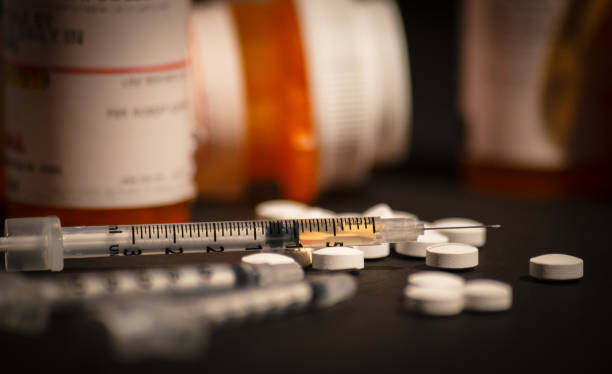
Wednesday June 30, 2021 | VICTORIA, BC [Updated July 2, 2021]
by Jalen Codrington | Island Social Trends | Editor: Mary P Brooke
Illicit drugs took the lives of 851 British Columbians in the first first five months of 2021. That’s up 21% from last year, according to new figures released this week by the BC Coroners Service (BCCS).
The BCCS reported at least 160 deaths in May across the province due to illicit substances. That’s the second highest instance of drug-related deaths in the month of May, after 177 deaths in the same month last year.
Municipalities experiencing the highest number of illicit drug toxicity deaths in 2021 are Vancouver, Surrey, and Victoria.
Sense of urgency:
“As the COVID-19 pandemic begins to wind down, we must turn our attention to combating B.C.’s other public health emergency with the same sense of urgency,” said Chief Coroner Lisa Lapointe.
“We need to ensure that safe alternatives to toxic illicit drugs are available throughout the province, and that we are taking meaningful steps to reduce stigma and offer substance users access to the supports they need and are seeking.”
Drugs in the mix:
Toxicology results of drug samples tested in May and April indicate extreme concentrations of fentanyl. Carfentanil, a more potent analogue of fentanyl, has also been detected in 75 deaths this year.
Benzodiazepines – a class of tranquilizers used to treat anxiety, seizures, and insomnia – have also had an increasing presence in opioids, creating a deadly combination.
Drugs & mental health:
The government released a statement by Minister of Mental Health and Addictions Sheila Malcolmson regarding the coroner’s report, in which she said: “Many are eager to socialize as COVID-19 restrictions lift, and people must be aware illicit drugs are more toxic and unpredictable than ever before. The drugs you might use today are not the same as they were one or two years ago,” she wrote.
Malcolmson outlined various overdose prevention strategies, including downloading the free Lifeguard app, carrying Naloxone, and using supervised consumption sites (most overdoses are occurring at private residences).
Using Naloxone:
Naloxone is a medication that counters the effects of opioids by kicking them off oxygen receptors, helping to restore breathing.
Naloxone is available without a prescription and often given as an injection into an arm, buttocks, or muscle. Naloxone will only work on opioid-related overdoses, though it will not cause harm if a person hasn’t taken opioids. Naloxone should be given to an unresponsive person – learn the signs of an overdose.
If you are eligible for the Take Home Naloxone program, you can receive a Naloxone kit at no cost, as well as overdose prevention and response training, at any program site. Visit the Toward the Heart site locator or call 8-1-1 anytime day or night to find a site near you.
2021 Response
The province has allocated $500 million to mental health and substance use over the next three years. Their response to the crisis has included but is not limited to:
- Earlier this year, the BC government wrote to Ottawa requesting a Section 56 exemption to the Controlled Drugs and Substances Act. The solicitor general has also asked police forces to no longer pursue criminal charges for people with personal possession of drugs.
- Forty-two new full-time registered nurses, psychiatric nurses, social workers, and peer support workers are being added to 14 new and existing interdisciplinary outreach teams throughout the province.
- There are currently 38 overdose prevention and supervised consumption services operating in B.C. under health authority direction. Of these, 12 offer observed inhalation. During COVID-19, all of these sites have been declared essential services
- $20 million has been allocated to the First Nations Health Authority for the renovation and replacement of Indigenous-run treatment centres throughout B.C.
It’s been over five years since the overdose crisis was declared a public health emergency. It is the longest-running emergency in BC. Since 2011, the BCCS reports at least 9393 British Columbians have died from illicit toxic substances.
===== LINKS:
Harm reduction services (BC Centre for Disease Control)
Where to get a Naloxone kit (BC Government)



